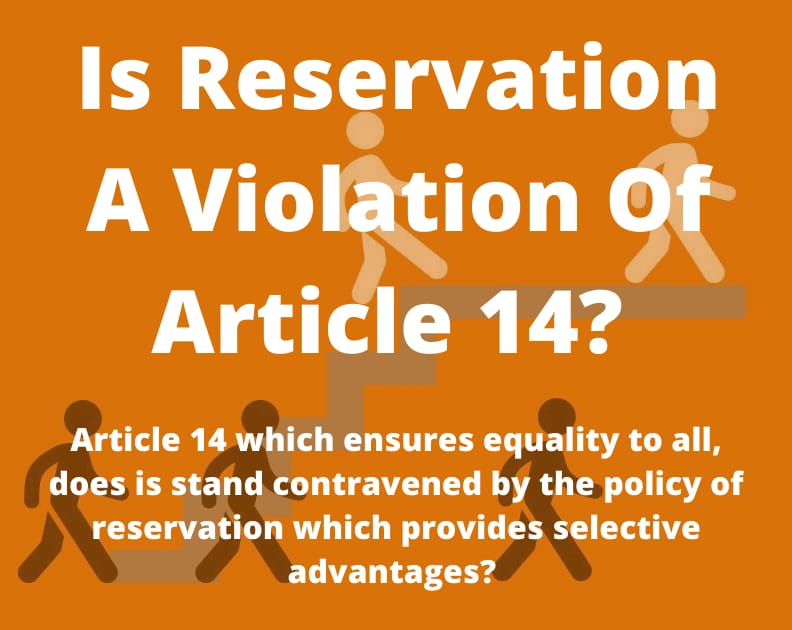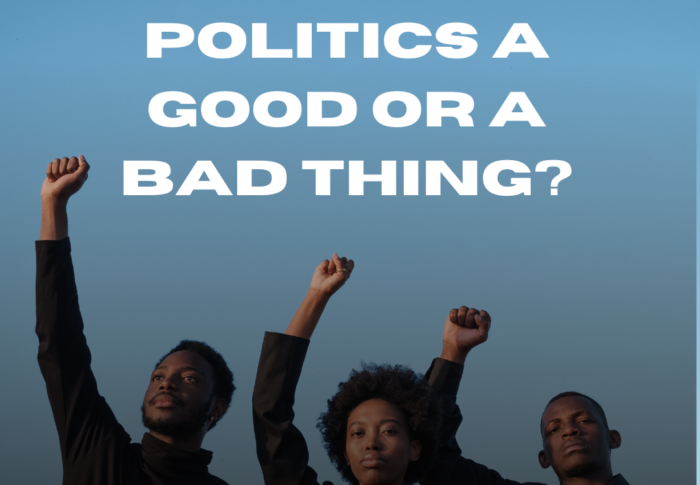
Is Reservation a violation of Article 14?
This short article deals with the question ‘Is Reservation a violation of Article 14, as it guarantees equality to all?’
Reservation is a policy designed to redress past discrimination against lower classes and minority groups through measures to improve their economic & educational opportunities. Reservation is an attempt to promote equal opportunities.
As we all know Article 14 of Indian Constitution establishes Rule of Law in the country, as well as equality to all before the law. But also Article 14 permits classification, so long as it is ‘reasonable’, but forbids class legislation, as the classification must be non-arbitrary. Primarily, the concept of ‘Equality’ is mentioned in the Preamble of Indian Constitution.
Reservation & Constitutional Assembly
In the constitutional assembly there was a fine debate about reservation due to it’s contradictory nature. As a result the constitution originally provided reservation for 10 years, but the members from the schedule castes disregarded this. They put forward that the policy shall either be renewed after 10 years or the 10 year period clause shall be abolished.
In case, there is no substantial progress. Or there is no change in the situation of the depressed classes even after 10 years of reservation, the policy shall continue.
finally, Our Constitution has mention of Reservation in various Articles like Part 16th deals with reservation of SC and ST in Central and State legislatures, Article 15(4) and 16(4) enabled the State and Central Govt to reserve seats in government services for the members of the SC and ST, Article 16(4A) to provide reservation in promotion, Article 330 and 332 provides for specific representation through reservation of seats for SCs and STs in the Parliament and in the State Legislative Assemblies respectively, Article 243D in every Panchayat, Article 233(T) in every Municipality, Article 335 of the constitution says that the claims of STs and STs shall be taken into consideration constituently with the maintenance of efficacy of the administration.
Relevant Cases :
Indra Sahney v. Union of India (1992)
The court, while dealing with whether creamy layer should be excluded from the criteria of reservation, stated that Article 16(4) is an enabling provision and permissive in character, The court noted, the provision is a source of reservation for appointments or posts in services for backward class of citizens.
MR Balaji v. State of Mysore (1963)
This case related to a challenge to an order by the former state of Mysore reserving 68% seats in engineering and medical colleges for educationally and socially backward classes and the SC and STs. The court in its judgment observed that Article 15 (4) is an enabling provision. It was stated “It does not impose an obligation, but merely leaves it to the discretion of the appropriate government to take suitable action, if necessary.”
To Conclude
I want to say that Reservations does not violate Article 14 of the Constitution. In the sense, Article 14, talks about two facets of Equality one is equally before law and another is equal protection of law. thus it can be seen that as per article 14 only equals have to be treated equally, while if un-equals are subjected the same measures of equality it would itself be a violation if the said provision
Lastly, I would like to quote our Former PM, Sir Jawaharlal Nehru, as he wrote in a letter to Chief Ministers of all states on 27th June 1961, “I dislike any kind of reservation, if we go in for reservations on communal or caste basis we (will) swamp the bright and able people and remain second-rate or third rate, this way lies not only folly but disaster.”
Read Similar Articles :






